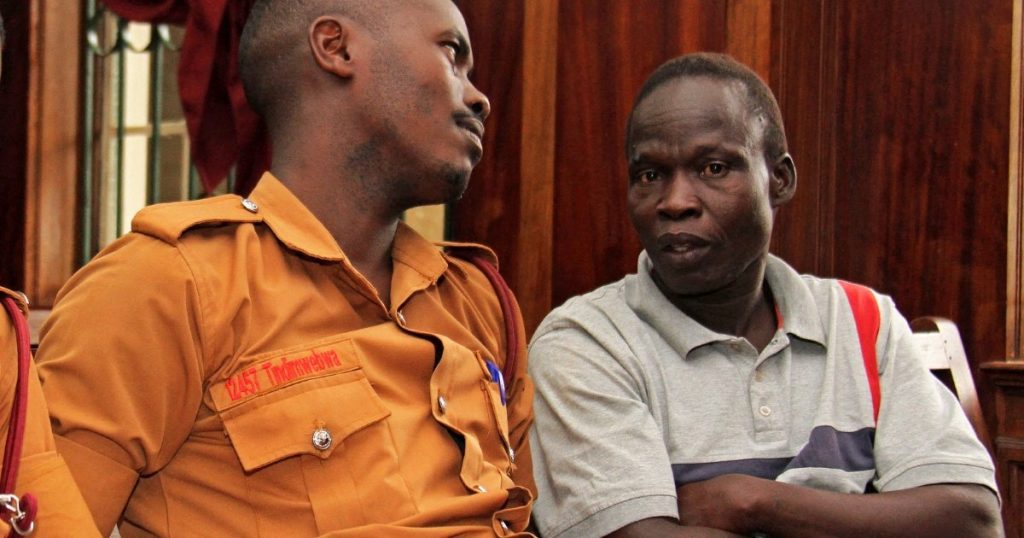Thomas Kwoyelo, the only commander of the feared Lord’s Resistance Army (LRA) to be tried in Uganda, has been found guilty of multiple counts of crimes against humanity. The International Crimes Division of the High Court in Gulu convicted him of 44 offenses, including murder, rape, torture, pillaging, abduction, and destruction of settlements for internally displaced people. He was, however, found not guilty of three counts of murder, with 31 alternate offenses dismissed. Sentencing details were not immediately available, making this the first atrocity case to be tried under a special division of the High Court focusing on international crimes.
Kwoyelo, who was abducted by the LRA at the age of 12, had denied all charges against him. A low-level commander in the militia, he was arrested in the Democratic Republic of Congo in 2009 during a hunt by regional forces against fleeing LRA rebels. He was initially put on trial in 2011 but was later released on amnesty grounds before being retried following a prosecution appeal. The LRA, founded by Joseph Kony, aimed to establish a regime based on the Ten Commandments, leading to over 100,000 deaths and the abduction of 60,000 children in a reign of terror spreading across Uganda, Sudan, the DRC, and the Central African Republic.
Kony, who is wanted by the International Criminal Court, has charges of rape, slavery, mutilation, murder, and child soldier recruitment against him. Despite thousands of rebel combatants receiving Ugandan government amnesty over the years, Kwoyelo was denied such reprieve without an explanation. This raised concerns among rights activists about the delay in trying him and the violation of his right to justice. Kwoyelo’s trial emphasized the challenges in delivering justice in a society healing from the consequences of war. The defendant argued that as he was abducted as a young boy to join the LRA, he should not be held responsible for the group’s atrocities.
The trial underscored the complex nature of seeking justice for crimes committed during the LRA insurgency. Kwoyelo’s defense emphasized his forced recruitment as a child and the hierarchy within the LRA, suggesting that only Kony should answer for the group’s actions. The long delay in trying Kwoyelo raised concerns regarding his right to a fair trial, as he faced charges for crimes he claimed were committed under duress. Kwoyelo’s denial of the charges against him, combined with his testimony on the internal workings of the LRA, added layers of complexity to the case.
The conclusion of Kwoyelo’s trial highlights the ongoing need for accountability for atrocities committed during the LRA insurgency. Despite the challenges faced in delivering justice, particularly in cases where individuals were forcibly recruited into armed groups, efforts must be made to ensure that those responsible for grave human rights violations are held accountable. The guilty verdict against Kwoyelo serves as a step towards achieving justice for the victims of LRA crimes and sends a message that impunity for such crimes will not be tolerated. As Uganda continues to heal from the impact of conflict, trials like Kwoyelo’s play a crucial role in addressing past injustices and promoting peace and reconciliation in the region.


